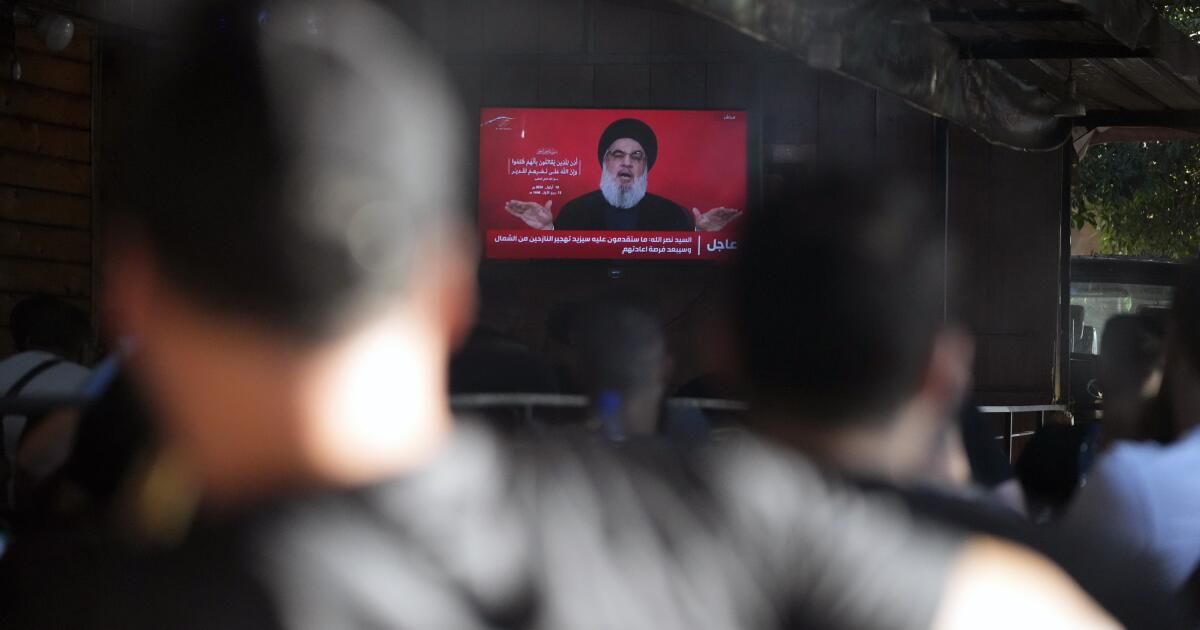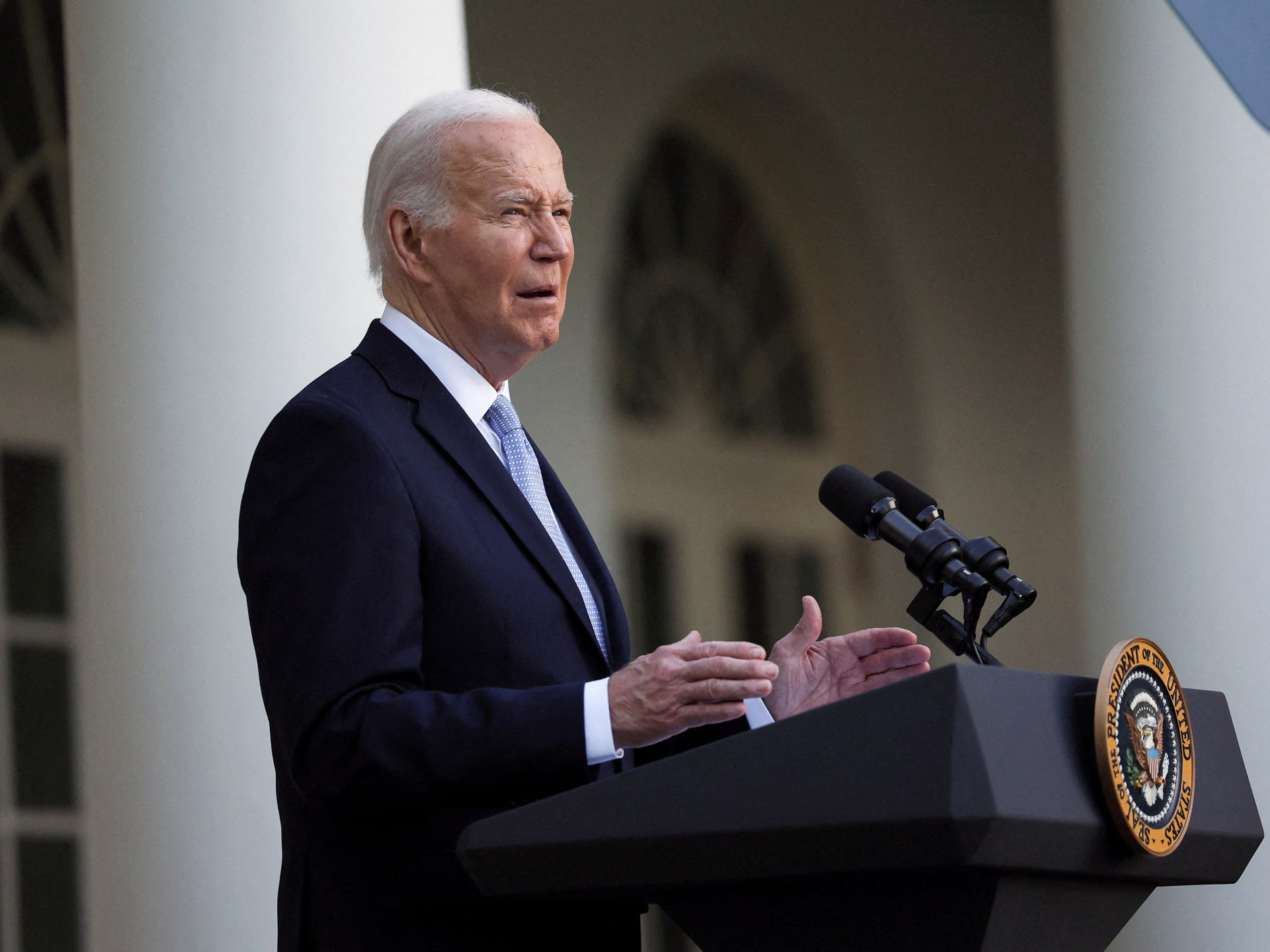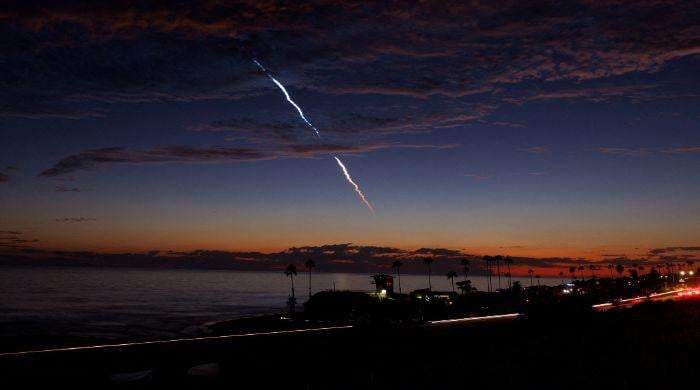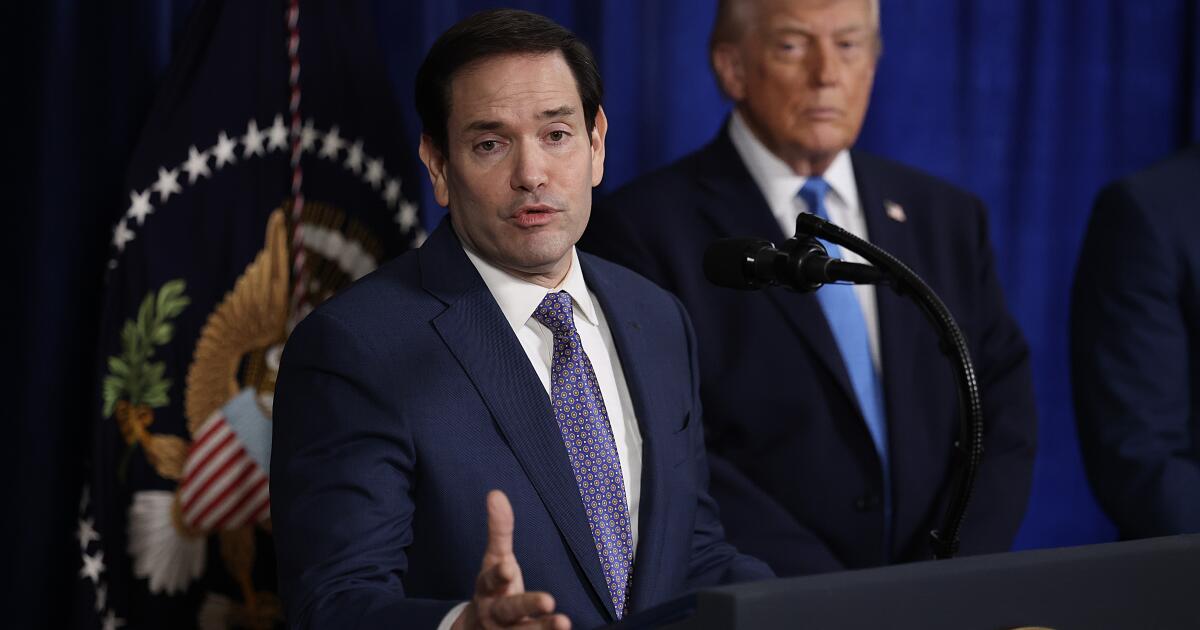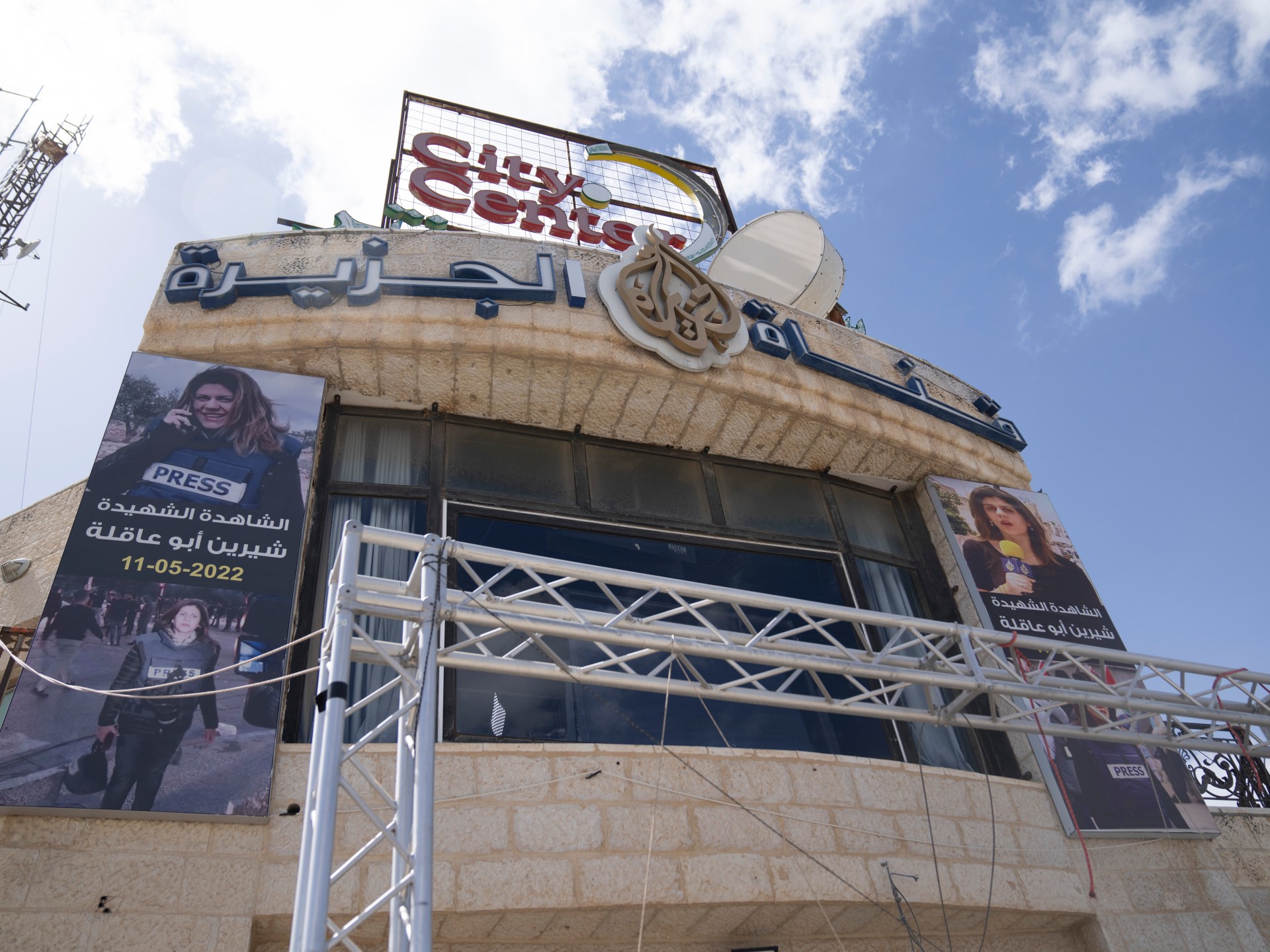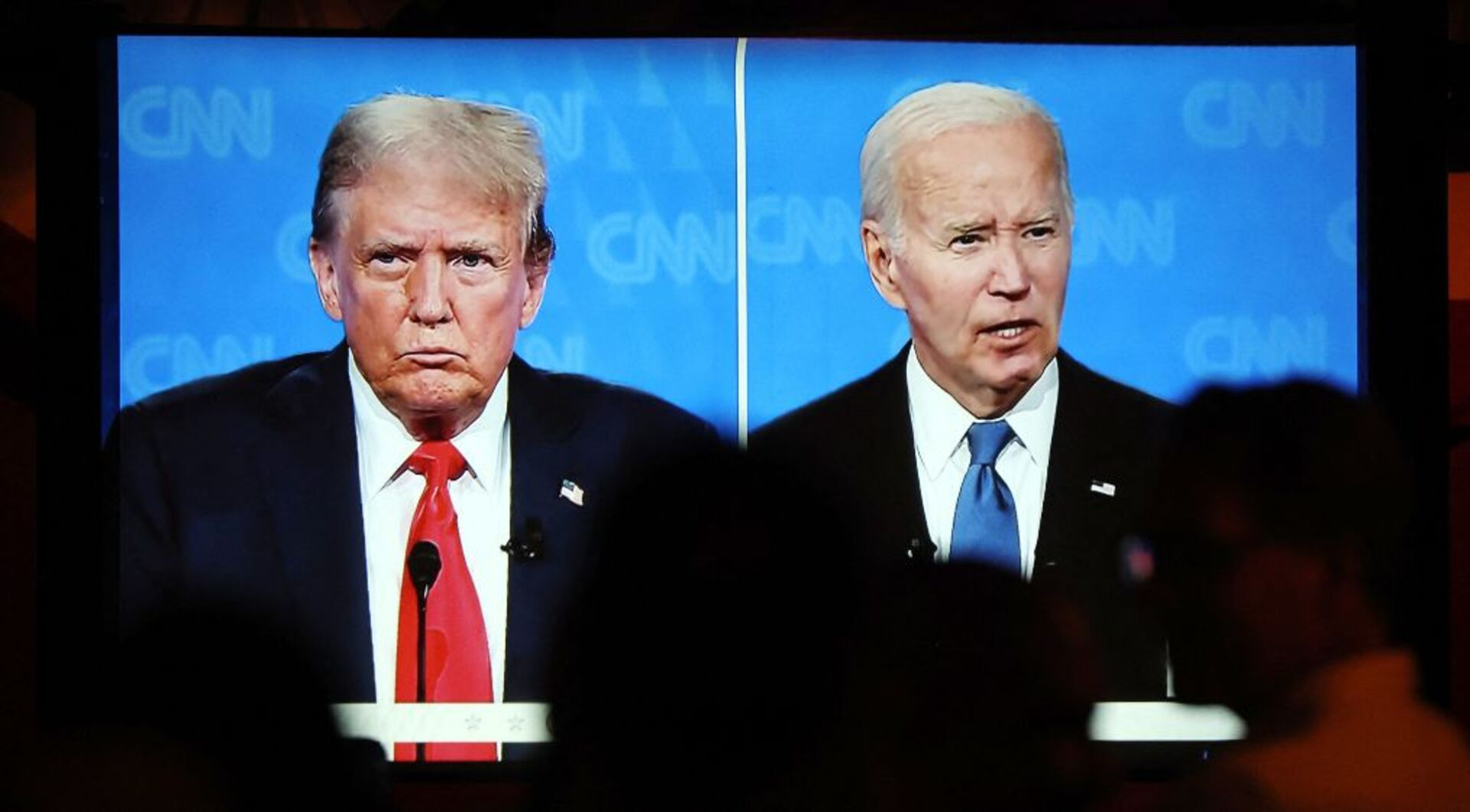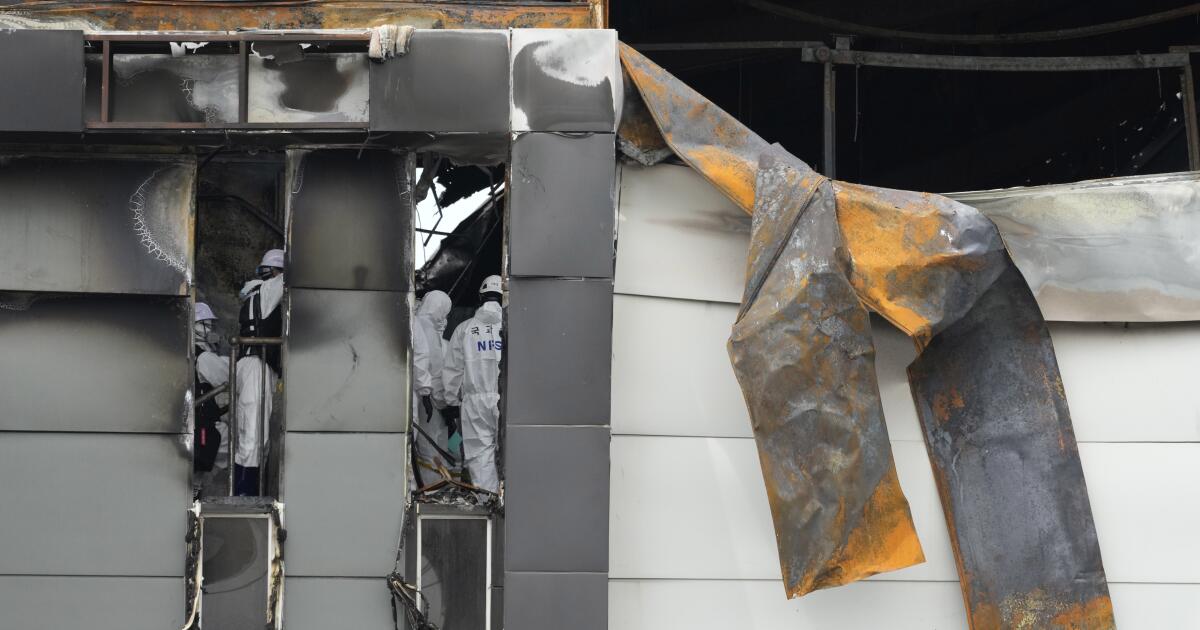As the roar of Israeli warplanes flew overhead, Hezbollah leader Hassan Nasrallah on Thursday accused Israel of “crossing all restrictions, red lines and laws” with the two-day wave of deadly electronic device explosions.
Although he vowed retaliation, Nasrallah acknowledged that the attacks represented “an unprecedented blow” to the group.
Nasrallah's speech was his first televised appearance after thousands of hand-held pagers and walkie-talkies exploded on Tuesday and Wednesday, killing 37 people and wounding 3,000 others.
A woman sits in a cemetery as she visits the graves of slain Hezbollah members in the southern suburbs of Beirut on Thursday.
(Hussein Malla/Associated Press)
Israel has neither claimed nor denied responsibility for the attacks, but it is widely believed to have carried them out. U.S. officials said Israel provided them with some details after the fact. Israel is believed to have somehow intercepted a shipment of devices purchased by Hezbollah and rigged them with explosives.
Nasrallah said the group has no intention of backing down. “This strong and powerful blow has not brought us down and will not bring us down,” he said.
Amid fears that the fighting could escalate into a full-scale war between Israel and Lebanon, both sides continued their airstrikes on Thursday.
The Israeli military announced it was attacking targets inside Lebanon to “degrade Hezbollah’s terrorist capabilities and infrastructure.”
As Nasrallah spoke from an undisclosed location, there were none of the usual gatherings at Hezbollah-affiliated convention centers to observe, a measure of the heightened security exerted by the group in the wake of what many say is the most significant security breach it has faced since its inception.
The attack involved the simultaneous detonation of some 5,000 pagers distributed among Hezbollah fighters and officials across the country. A day later, some 1,000 walkie-talkies also went off. Hezbollah had turned to older communications technologies in an attempt to evade Israeli surveillance of mobile phones.
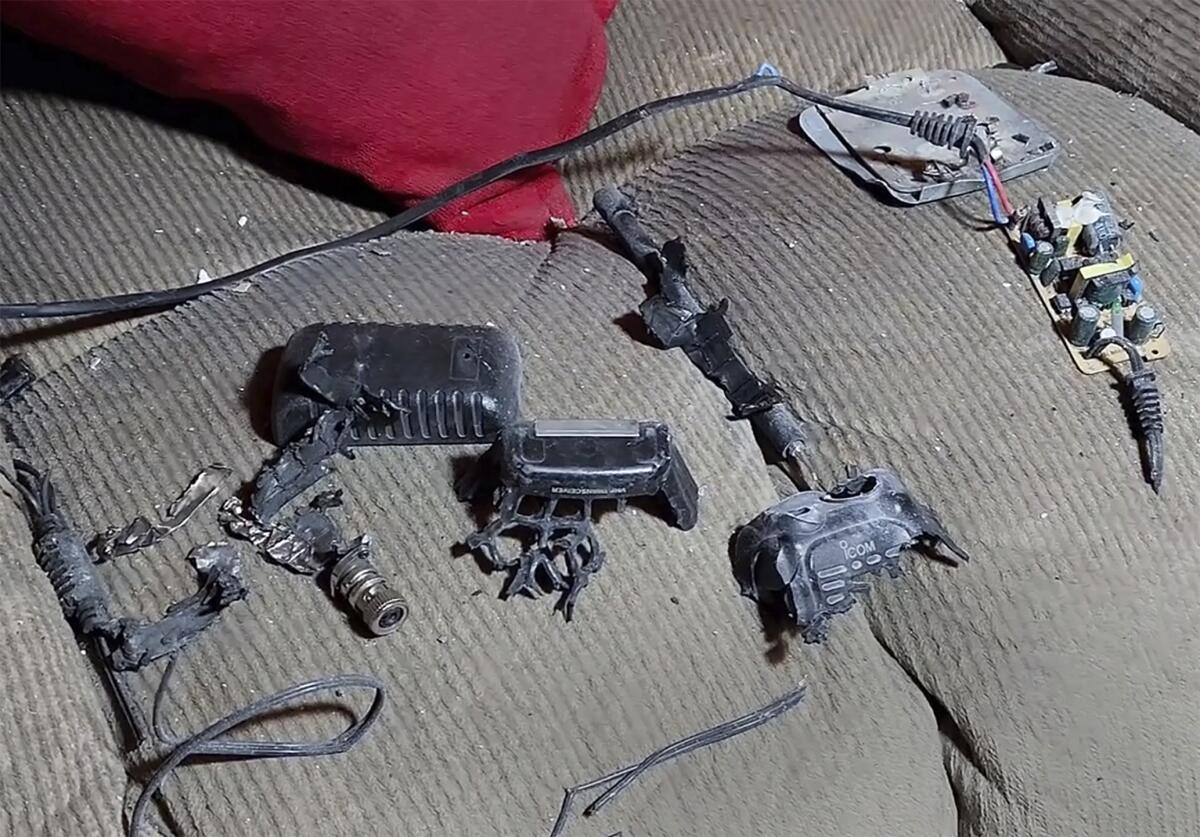
This video capture shows a walkie-talkie exploding inside a house, in Baalbek, eastern Lebanon, on Wednesday.
(Associated Press)
In recent days, Israel has repeatedly shown its most aggressive stance toward Hezbollah. On Thursday, the Israeli military said its chief of staff, Lt. Gen. Herzi Halevi, had recently approved new plans for the northern conflict zone. A day earlier, Defense Minister Yoav Gallant declared that the conflict was entering a “new phase.”
Gallant said Thursday he had been in contact overnight with U.S. Defense Secretary Lloyd Austin about “defending Israel against Hezbollah threats.”
Nasrallah said the technical and security committees were investigating the incident. He downplayed the effect of the attack on Hezbollah's military leadership, saying senior commanders were not affected because they were using older pagers.
Hostilities between Israel and Lebanon resumed after Hezbollah, an Iran-backed militant group and political party, launched rocket attacks on Israel on Oct. 8. Hezbollah said it attacked as a gesture of support for the Palestinian armed group Hamas, which has been fighting with Israel for nearly a year.
Although fighting between Israel and Hezbollah has been relatively limited, some 90,000 people in southern Lebanon have been forced to flee their homes. In northern Israel, some 60,000 remain displaced.
Nasrallah said Hezbollah will continue to support Hamas.
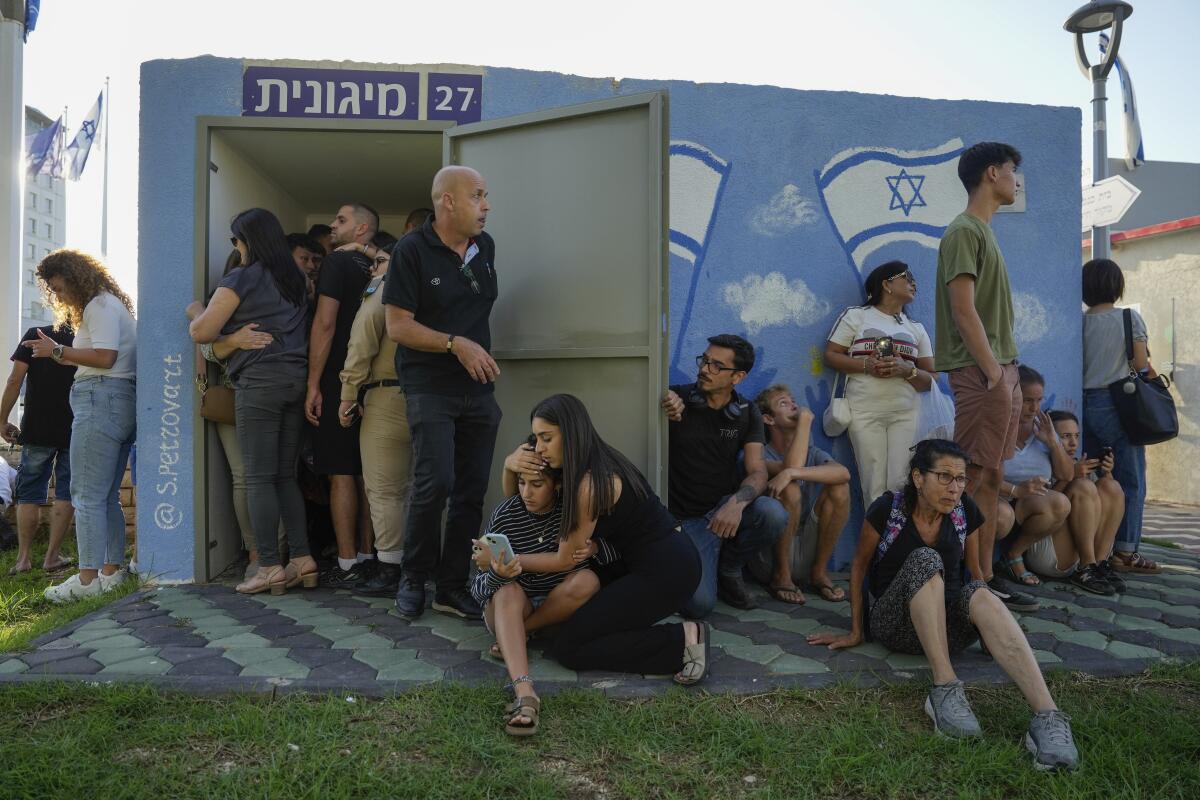
Israelis take cover next to a shelter as a siren sounds warning of rockets fired from Lebanon, in Nahariya, northern Israel, on Thursday.
(Baz Ratner/Associated Press)
“We tell him [Israeli Prime Minister Benjamin] “Netanyahu and Gallant, the Lebanese front will not stop until the aggression against Gaza stops,” Nasrallah said.
The two-day strikes severely disrupted Hezbollah's internal communications capabilities, but the group maintains a formidable arsenal of weapons.
Israeli analysts suggested the attacks were a prelude to a much wider conflict.
“You can’t do something like that, attack thousands of people and think there won’t be a war,” retired Brigadier General Amir Avivi, now a military analyst, told The Times of Israel.
Staff writer Bulos reported from Beirut and staff writer King from Tel Aviv.

